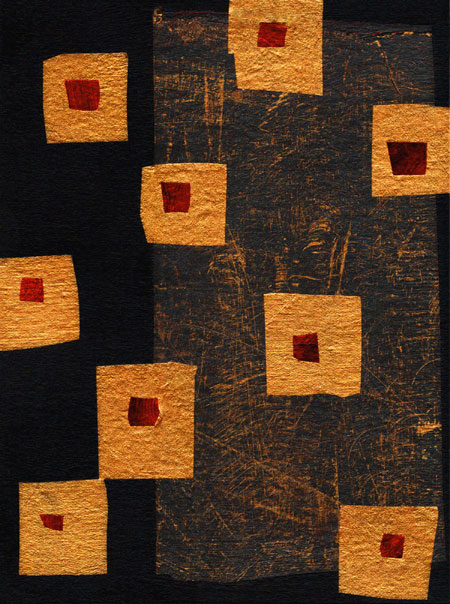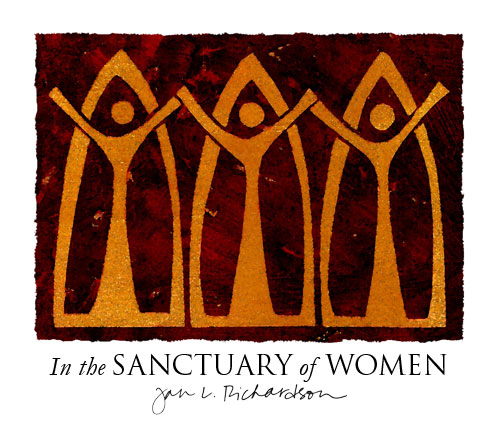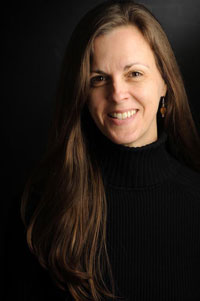
Litany of the Blessed © Jan Richardson
As we cross into the fourth week of Lent—and approach the halfway point of the season—the readings for this week come from a chapter of Sacred Journeys titled “Stirring the Ashes: Elemental Blessings.”
Invocation
God of fire, earth, wind, and water,
embrace the elemental wounds we bear.
God of grace and healing,
help me return your embrace,
that I may bring forth new blessings
from the broken places.
Text
Deuteronomy 30:19-20
Context
In Lent, we are laid bare. As we remember our pain, as we touch our wounds, as we journey toward the terror of the cross, we may find ourselves feeling vulnerable, sore, exposed. We may struggle against the way Lent strips us of pretense and beckons us to see what is basic to us. Yet the ashes of the first day of Lent affirm that we are elemental people. We who are fashioned of earth are also touched by fire, brought to life by the breath of God, and blessed by the birthing waters. Here, in the middle of the Lenten journey, we pause to reflect on the elements of which we are made, to consider not only the wounds that they sometimes harbor but also the possibilities they hold for blessing.
Several years ago I found myself on a Lenten journey that left me raw and intimate with brokenness. A friendship that had provided trust, safety, and delight gave way to alienation, insecurity, and anger. At the time I also was working as a facilitator of a group of emotionally and physically abused women. One night, in the midst of all this, I realized I couldn’t take Communion. How could I share in the breaking of the body and the blessing of the cup after listening to the stories of women whose bodies had been broken and whose blood had been shed? And how could I share Communion with the friend who had led me to such brokenness, who had turned the cup of blessing bitter?
Friends who companioned me in the journey provided moments of communion when I couldn’t share in the ritual of Communion. They shared blessings when I couldn’t share the loaf and cup. Slowly, painfully, I came to understand Communion anew. Gathered around the table, we who are broken re-member the body of Christ. By our care for the broken of this world, we give birth to the Christ who wills blessing, not brokenness, for all.
That Lenten journey gave rise, much later, to the blessings contained in this week’s readings. Written for the friend who had become a stranger, they became a cry of life and hope in the wake of pain and loss. Broken at an elemental level, I fashioned these blessings, and they bear witness to a keen memory that longed to re-member differently the elemental connections between us and within myself.
Excerpts from a letter that accompanied these blessings weave them together. In the letter, I tried to give voice to the source of the blessings and to my understanding of blessing as an act of power in a seemingly powerless situation.
May this week’s dance of blessing and reflection lead you to your elemental places, the spaces within you that bear deep wounds as well as seeds of new birth. May God meet you in these depths, holding you as you remember.
Monday
By Fire Be Blessed
May you dwell by the Sacred Fire.
May the flames of the Holy dance in your eyes:
flame of wisdom
flame of insight
flame of longing
flame of devotion
flame of new vision
flame of long memory
flame of warmth-of-spirit
flame of strength-of-body.
May the Sacred Fire dwell in you.
May you dance as flame in the eyes of the Holy.
Questions for reflection
What do you consider elemental in your life? How does this season invite you to look at what is most crucial and fundamental for you— the stuff of which you are made and from which you fashion your life? What blessings do you find in the elemental spaces of your self?
From Sacred Journeys © Jan L. Richardson
For an introduction to the Lenten journey we’re making here at Sanctuary of Women, visit A Season of Spiraling. Today’s artwork originally appeared here at The Painted Prayerbook.


